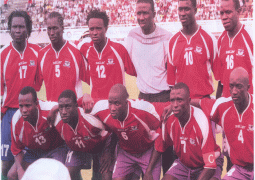This does not mean that one appropriates to one's own self-whether individual or social or religious-the wisdom of the Other; rather, it means that one recognizes the wisdom of Other as being expression of the wisdom of God, the one and only source of wisdom, however it be expressed. How, then, is it 'mine'? Insofar as one's identity is defined by one's relationship with God as the source of all truth, beauty and wisdom, one's 'self' will be, in that very measure, inextricably bound up with the wisdom one perceives, however alien be the context or culture in which it is expressed. On the specifically Islamic level, such as approach produces this attitude: that which is wise is-by its essence if to its form-'Islamic.' It 'belongs' to us, and we identify with it. This contrast with the prejudice: only that which is Islamic-in its form-is wise.
One should note that the universal vision of wisdom was at its strongest when Islamic civilization was at its most authentic and confident-witness the extraordinary assimilation and transformation of the various ancient forms of wisdom in the early 'Abbasid period; this was an exemplification of the calibrated appropriation and creative application of wisdom-form the intellectual legacy of the Greeks, and the Persians, Indians, and Egyptians, Mesopotamians, Assyrians, etc.-on a grand, civilizational scale, transforming and enriching Muslim philosophy, science and culture. By contrast, it is the exclusivist, prejudiced approach to wisdom that prevails today, when Islamic 'civilization' can hardly be said to exist anywhere. It would also appear to be the case that when Islamic civilization existed, da 'wa was not invested with the emotional intensity which it has acquired in our times. Modernism-with Its highly developed tools of propaganda its tendencies of ideologization, bureaucratization and uniformalization-has influenced Muslim thought and behaviour and made Muslim da 'wa much more like Christian missionary movement; in traditional Islam, the da 'wa that existed was far more low-key, personal and took the form of preaching through personal example-it is no accidental, that, as Thomas Arnold's masterly study reveals, the main 'missionaries' of traditional Islam were mystics and merchants. The emotional intensity with which da 'wa is invested in our times would appear to be, on the one hand, a function of the very weakness of Islamic culture, a defensive reflex used to disguise one's 'civilizational' deficiencies; and on the other, it is a kind of inverted image of the missionary Christian movements to which the Muslim world has been subjected in the past few centuries, a mimetic response to one’s erstwhile colonizers.
One cannot deny, however, that da 'wa has always played a role in Muslim culture, and that it has a role to play today. To ignore da 'wa, within a Muslim context, is to render questionable one’s credentials as a 'valid interlocutor' on behalf of Islam. But one ought to be aware of the kind of da 'wa that is appropriate in our times, and to seek to learn from the most subtle and refined spirituality of the Islamic tradition in order to make wisdom the basis of one's da 'wa. The kind of da 'wa being proposed here is one which seeks to be true to the wisdom which flows from the Quranic message of religious diversity, a message read in depth, according to Sufi hermeneutics, and in particular the metaphysics of Ibn al-Arabi. This would be a form of da 'wa which contrasts sharply with the kind of triumphalism propaganda with which we are all too familiar in our time: a disdainful and arrogant call, issuing form harshly exclusivist attitudes which manifest the claim that ‘my’ religion is alone right and all others are wrong. A dialogue based on wisdom would also be a form of dialogue which contrasts quite sharply with a relativistic pluralism which, by reducing all religious beliefs to a presumptuous lowest common denominator, ends up by undermining one’s belief in the normativity of one’s religion-a belief which is so central to the upholding of one's faith with integrity. The kind of da 'wa-as-dialogue being proposed here charts a middle path, avoiding two extremes which are in fact closer to each other than is immediately obvious: a fundamentalist type of da ‘wa which alienates the Other on account of its blatant exclusivity, and a pluralistic mode of dialogue which corrodes the Self on account of its thinly veiled assault on normativity. An effective, realistic, and practical mode of dialogue must do justice both to the Self which one ostensibly represents, and to the Other with whom one is in dialogue; there has to be room for the expression of one's belief in the normativity of one's tradition-the belief that one's religion is the best religion, failing which, one would not adhere to it. The right of the other to bear witness to his faith should, likewise, be respected.
The question might then be asked: how can these competing truth-claims be reconciled with the needs of dialogue-will the result not simply is two mutually exclusive monologues engaging in an unseemly type of competitive religion rather than respecting each other in an enriching dialogue of comparative religion? There is an existential argument one can make, whatever be the faith adhered to, on behalf of this 'exclusivist' claim, and this argument is base on the fact that religion is not simply a conceptual schema, it is a transformative power. In the 'clash' between rival religions, one is not only confronted by competing, mutually exclusive truth-claims; one is also presented with alternative paths to realization of a Reality which radically transcends all conceptually posited truths. One's perception of the 'truths' which fashion and delineate one's path to Reality will be deepened, and the truth-claims will be correspondingly corroborated, in proportion to one's progress along that path: therefore the claim that one's religion is 'more true' that other religions is a claim about the transformative power which one has directly experienced, and it is this which bestows an existential certainty-rather than any kind of logical infallibility- about one’s claim on behalf of the spiritual power of one's religion, a degree of certainly which is absent from a purely conceptual truth-claim one might make on behalf of the dogmas of one’s religion. Religion is more about realization than conceptualization; or rather, it is about an initial set of concepts which all out for spiritual action and which find their consummation in spiritual realization.
The Buddhist notion of doctrine-all doctrine-as an upaya, a 'saving strategy' is an example of a wise doctrine which we might use here to help explain this point. This notion means, essentially, that all doctrines are veils which transmit some aspects of the truth while obscuring others: the communicable aspect of the truth in question is transmitted, but at the price of obscuring its incommunicable dimension, if it be taken too seriously, that is: if the communicable aspect of the truth be take as the whole truth. The key spiritual function of doctrine is to point to a reality beyond itself, and is likened, within Buddhism, to a finger pointing at the moon: one is urged to look at the moon indicated by the finger, and not focus exclusively on the finger. This reduction of the spiritual end to the conceptual means is what fanatical dogmatism does; by contrast, a more supple approach to dogma results in seeing it as a means to an end: the dogma as theory leads to spiritual praxis, and moral transformation, thanks to which the ‘eye of the heart’ is opened up, enabling it to 'see' that Reality to which the dogma bear witness, but which it cannot encompass or exhaust.
In regard to the function of language in the search for truth, Rumi makes this point, which resonates with the idea of an upaya, and which highlights the need for spiritual action as an accompaniment to doctrinal learning:
'Someone asked: then what is the use of expressions and words? The Master [i.e., Rumi] answered: the use of words is that they set you searching and excite you, not that the object of the quest should be attained through words. If that were the case, there would be no need for so much striving and self-naughty. Words are as when you see afar off something moving; you run in the wake of it in order to see it; it is not the case that you see it through its movement. Human speech too is inwardly the same; it excites you to seek the meaning, ever though you do not see it in reality.'
Rumi then reinforces the point, stressing the incommensurability between the kind of learning that comes through reading, on the one hand, and the understanding that arise form the spiritual discipline of self-transcendence, on the other:
'Someone was saying: I have studied so many sciences and mastered so many ideas, yet it is still not known to me what that essence in man is that will remain forever, and I have not discovered it. The Master answered: if that had been knowable by means of words only, you would not have needed to pass away from self and suffer such pains. It is necessary to endure so much for yourself not to remain, so that you may know that thing which will remain…..'
To be continued.
Read Other Articles In Article (Archive)

Latrikunda United will clash with Gunjur United in GFA 2nd Division
Jul 25, 2012, 2:42 PM



